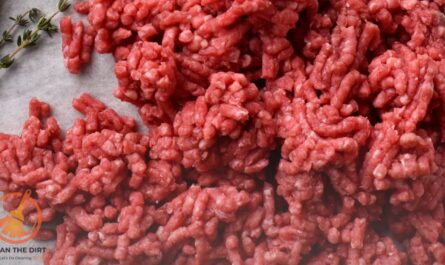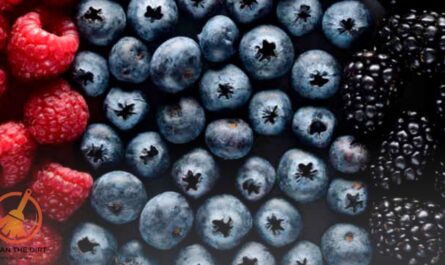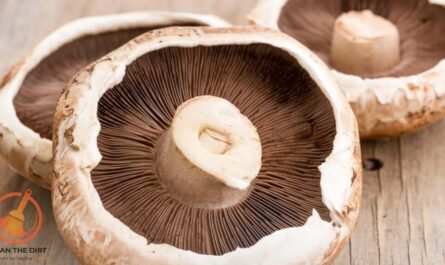Table of Contents
Introduction
Welcome to our guide on how to clean strawberries without vinegar or baking soda. Whether you’re looking for a more natural approach to cleaning your strawberries or you simply want to avoid the taste or allergic reactions associated with vinegar or baking soda, you’ve come to the right place. Cleaning strawberries is an essential step to ensure they’re safe to eat and free from any unwanted residue or impurities.
In this article, we’ll explore a variety of gentle and effective methods that don’t involve vinegar or baking soda, allowing you to enjoy your strawberries with confidence. From simple water rinses to innovative alternatives like saltwater soaks and lemon juice rinses, we’ll cover everything you need to know about how to clean strawberries without vinegar or baking soda to keep your strawberries fresh, clean, and delicious. So let’s dive in and discover the best ways to give your strawberries a thorough cleaning without the use of vinegar or baking soda.
Why Avoid Vinegar and Baking Soda?
While following the process of how to clean strawberries without vinegar or baking soda, many people wonder why avoid vinegar or baking soda when cleaning strawberries. While vinegar and baking soda are commonly used for cleaning purposes, they may not be the best options for strawberries. One reason is taste. Vinegar can leave behind a tangy or sour taste on the strawberries, which may not be appealing to everyone. Similarly, baking soda can leave a residue that alters the flavor of the strawberries.
Additionally, some individuals may have allergies or sensitivities to vinegar or baking soda, making it important to find alternative cleaning methods. For those who prefer a more natural approach to cleaning their strawberries, avoiding vinegar and baking soda is essential.
Fortunately, there are plenty of effective alternatives that can clean strawberries without vinegar or baking soda while still ensuring they’re safe to eat.
By understanding the reasons behind avoiding vinegar and baking soda, you can make informed decisions on how to clean strawberries without vinegar or baking soda and enjoy them to the fullest. While not for strawberries but you can use baking soda for cleaning apples and other fruits of this kind like cleaning grapes to ensure your regular hygiene and perfect health for you and your family and it also ensures the freshness and longevity of fruits. Let’s explore some alternative methods that are gentle, safe, and free from unwanted tastes or residues.
How to Clean Strawberries Without Vinegar or Baking Soda? Step-by-Step Guide
Method 1: Water Rinse
One of the most straightforward methods for this guide on how to clean strawberries without vinegar or baking soda is to give them a gentle water rinse. This method is perfect for those who prefer a minimalist approach to cleaning their strawberries or who want to avoid the taste or residues left behind by vinegar or baking soda.
To clean strawberries without vinegar or baking soda using this method, start by filling a clean bowl or sink with cold water. Cold water is ideal as it helps maintain the strawberries’ freshness and crispness. Then, carefully place the strawberries in the water, making sure not to overcrowd them. Gently swish the strawberries around in the water for about 30 seconds to a minute, allowing any dirt or debris to loosen and float away.
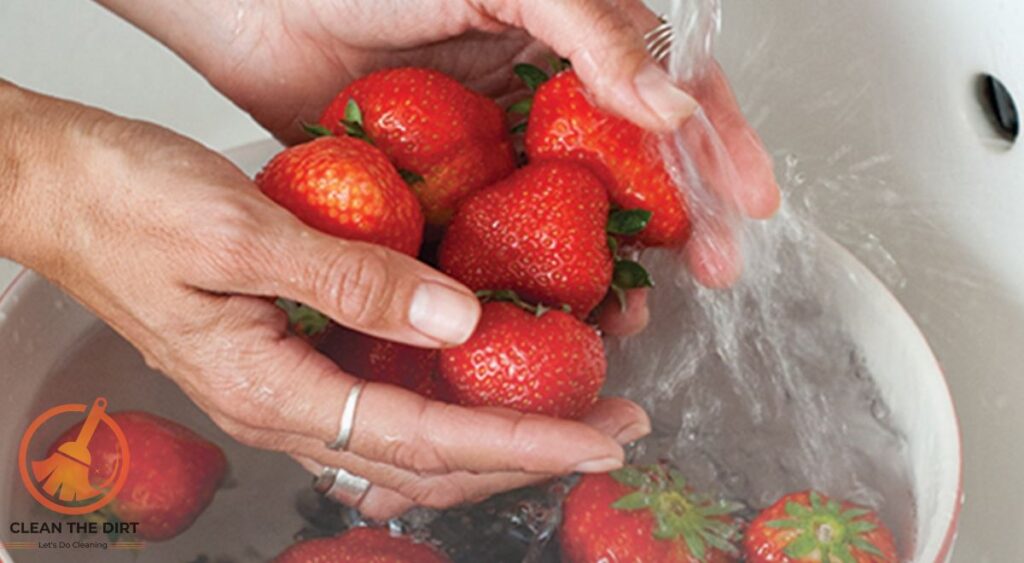
Once you’ve given the strawberries a thorough rinse, remove them from the water and place them on a clean kitchen towel or paper towel to dry. Avoid using high-pressure water or scrubbing the strawberries too vigorously, as this can damage their delicate skin and texture.
After drying, your strawberries are now cleaned without vinegar or baking soda and ready to enjoy. This method is quick, easy, and effective, making it a go-to option for many strawberry lovers. Plus, you can rest assured knowing that your strawberries are free from any unwanted residues or contaminants, allowing you to savor their natural sweetness to the fullest.
Method 2: Saltwater Soak
Another effective method of this guide on how to clean strawberries without vinegar or baking soda is to use a saltwater soak. This method not only helps remove dirt and debris from the strawberries but also preserves their natural flavor and freshness.
To clean strawberries without vinegar or baking soda using this method, begin by preparing a saltwater solution. Fill a clean bowl with cold water and add a tablespoon of salt per quart of water. Mix the water gently to dissolve the salt, creating a mild saline solution.
Next, carefully place the strawberries in the saltwater solution, ensuring they are fully submerged. Allow the strawberries to soak for about 5 to 10 minutes, allowing the saltwater to penetrate the fruit and loosen any dirt or contaminants.
After the soaking time is up which is mentioned in this guide on how to clean strawberries without vinegar or baking soda, remove the strawberries from the saltwater solution and rinse them thoroughly under cold running water. Be sure to rinse off any remaining salt residue to prevent altering the taste of the strawberries.
Using a fresh paper towel or kitchen towel, gently dry the strawberries after they have been rinsed. Now your strawberries are cleaned without vinegar or baking soda and ready to be enjoyed.
This method is effective for this guide on how to clean strawberries without vinegar or baking soda and provides the added benefit of enhancing their natural sweetness. The saltwater soak is a gentle yet powerful way to ensure your strawberries are free from any unwanted residues or contaminants, allowing you to indulge in their delicious flavor with peace of mind.
Method 3: Lemon Juice Rinse
If you’re looking for a natural alternative to vinegar for this guide on how to clean strawberries without vinegar or baking soda, consider using lemon juice. Lemon juice not only helps remove dirt and bacteria from the strawberries but also adds a refreshing citrus flavor that complements their sweetness.
To clean strawberries without vinegar or baking soda using lemon juice, start by squeezing fresh lemon juice into a bowl. You’ll want enough lemon juice to cover the strawberries when they’re added to the bowl.
Next, fill the bowl with cold water, mixing it with the lemon juice to create a diluted lemon juice solution. The acidity of the lemon juice helps break down any residues on the strawberries while adding a hint of citrus freshness.
Carefully place the strawberries in the lemon juice solution, ensuring they are fully submerged. Allow the strawberries to soak for about 5 to 10 minutes, allowing the lemon juice to work its magic.
After the soaking time is up, remove the strawberries from the lemon juice solution and rinse them thoroughly under cold running water. Be sure to rinse off any remaining lemon juice to prevent altering the taste of the strawberries.
After rinsing, use a fresh paper towel or kitchen towel to wipe the strawberries dry. Now your strawberries are cleaned without vinegar or baking soda and ready to be enjoyed.
This method not only effectively cleans strawberries but also infuses them with a subtle citrus flavor, enhancing their natural sweetness. By using lemon juice in the way described in this guide on how to clean strawberries without vinegar or baking soda, you can ensure your strawberries are free from any unwanted residues or contaminants, allowing you to savor their delicious flavor with confidence.
Method 4: Commercial Fruit Wash
For those who prefer the convenience of ready-made solutions, there are commercial fruit wash products available that are specifically designed for cleaning strawberries. These products offer an easy and effective way to ensure your strawberries are thoroughly cleaned and safe to eat.
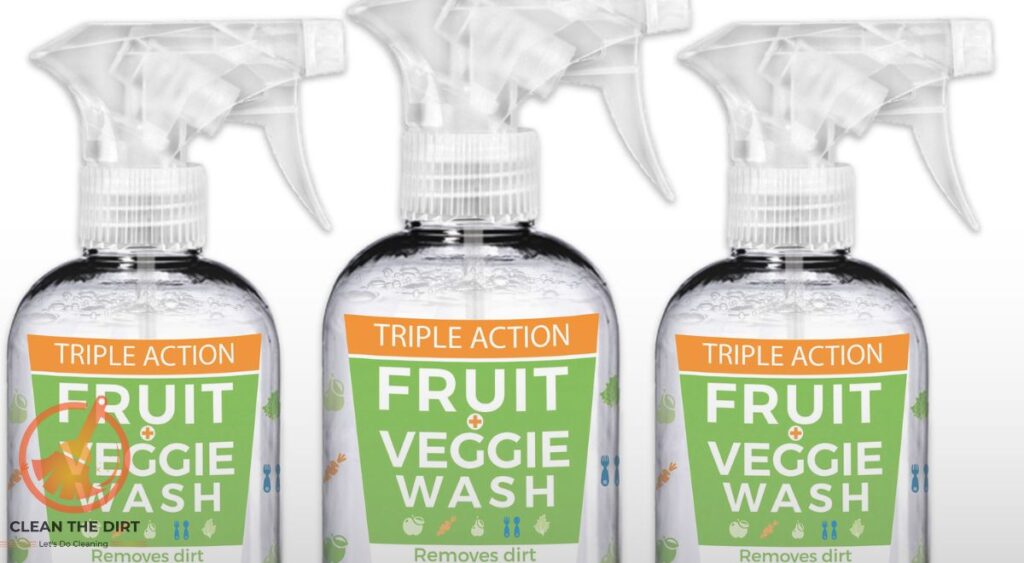
When selecting a commercial fruit wash, look for products that are labeled as safe for use on strawberries and other delicate fruits. These products are typically formulated to remove dirt, pesticides, and other residues while being gentle on the fruit’s skin and flavor.
To clean strawberries using a commercial fruit wash, simply follow the instructions provided on the product’s packaging. In most cases, you’ll need to dilute the fruit wash it with water, and then immerse the strawberries in the solution for a specified amount of time.
After the recommended soaking time, remove the strawberries from the fruit wash solution and rinse them thoroughly under cold running water. Be sure to rinse off any remaining residue to prevent altering the taste of the strawberries.
After rinsing, use a fresh kitchen towel or paper towel to wipe dry the strawberries. Now after following this guide on how to clean strawberries without vinegar or baking soda, your strawberries are cleaned.
Commercial fruit wash products offer a convenient and reliable option for cleaning strawberries, providing peace of mind that your fruit is free from any undesirable residues or pollutants. By incorporating a commercial fruit wash into your cleaning routine, you can ensure your strawberries are fresh, clean, and safe to eat.
Method 5: Vinegar and Baking Soda Alternatives
If you’re looking for alternative methods for how to clean strawberries without vinegar or baking soda, there are several natural options to consider. These alternatives offer effective cleaning power without the use of vinegar or baking soda, allowing you to enjoy your strawberries with spirit.
Alternative: 1 (Hydrogen Peroxide)
One alternative to vinegar for cleaning strawberries is hydrogen peroxide. Diluted hydrogen peroxide can help remove dirt, bacteria, and pesticides from the strawberries while being gentle on the fruit’s delicate skin.
To use hydrogen peroxide as a cleaning solution, mix one part hydrogen peroxide with three parts water in a clean bowl. Carefully place the strawberries in the solution and allow them to soak for about 5 minutes. After soaking, rinse the strawberries thoroughly under cold running water and pat them dry before enjoying.
Alternative: 2 (Apple Cider Vinegar)
Another alternative is apple cider vinegar. While it contains vinegar, apple cider vinegar has a milder flavor than white vinegar and may be more palatable for some individuals. To use apple cider vinegar for cleaning strawberries, dilute it with water in a 1:3 ratio and follow the same soaking and rinsing process as with hydrogen peroxide.
Alternative: 3 (Lemon Juice and Water Mixture)
Additionally, you can consider using a mixture of lemon juice and water as an alternative cleaning solution. Lemon juice not only helps remove dirt and bacteria but also adds a refreshing citrus flavor to the strawberries.
By exploring these vinegar and baking soda alternatives mentioned in this guide on how to clean strawberries without vinegar or baking soda, you can find a cleaning method that suits your preferences and ensures your strawberries are fresh, clean, and safe to eat. To guarantee your health and the freshness of the fruit, you need to pay attention to the other fruits, such as cleaning berries and even you should clean any kind of fruit. Experiment with different solutions to find the one that works best for you and enjoy your strawberries with peace of mind.
Conclusion
In conclusion, we’ve explored a variety of gentle and effective methods of how to clean strawberries without vinegar or baking soda. From simple water rinses to innovative alternatives like saltwater soaks, lemon juice rinses, commercial fruit washes, vinegar, and baking soda alternatives, there are plenty of options available to ensure your strawberries are fresh, clean, and safe to eat.
By understanding the reasons behind avoiding vinegar and baking soda and exploring alternative cleaning methods, you can make informed decisions about how to clean strawberries without vinegar or baking soda. Whether you prefer a minimalist approach or the convenience of ready-made solutions, there’s a method out there that suits your preferences and needs.
Remember, the key is to handle your strawberries with care and use gentle cleaning techniques to preserve their natural flavor and freshness. By following the methods outlined in this guide, you can enjoy your strawberries with belief, knowing they’re free from any unwanted residues or impurities.
It’s time to have a quick look at the following table for a better understanding of the cleaning methods and their productivity.
| Cleaning Method | Pros | Cons |
|---|---|---|
| Water Rinse | Simple and easy | May not remove stubborn residues |
| Gentle on strawberries | Less effective for heavily soiled fruit | |
| Saltwater Soak | Effective at removing dirt and bacteria | Requires additional time for soaking |
| Preserves natural flavor | Salt residue if not rinsed thoroughly | |
| Lemon Juice Rinse | Adds a refreshing citrus flavor | May alter the taste of some individuals |
| Antibacterial properties of lemon juice | Requires fresh lemon juice | |
| Commercial Fruit Wash | Convenient and ready-made | May contain additives or chemicals |
| Specifically formulated for fruit | Cost may be higher than DIY methods | |
| Vinegar and Baking Soda Alternatives | Natural and chemical-free | May not be as effective as vinegar or baking soda |
| May alter the taste for some individuals | Requires additional ingredients |
So the next time you’re craving a juicy strawberry snack, you can rest assured knowing that you have the knowledge and tools to clean strawberries without vinegar or baking soda. Experiment with different methods, find what works best for you, and enjoy your strawberries to the fullest.
Frequently Asked Questions (FAQs) for How to Clean Strawberries without Vinegar or Baking Soda?
Can I just rinse the strawberries with water?
Yes, rinsing strawberries with water is a simple and effective method for cleaning them. However, some people prefer additional cleaning methods to ensure thorough removal of dirt and contaminants.
Why should I avoid vinegar or baking soda for cleaning strawberries?
Vinegar and baking soda may alter the taste of strawberries or leave behind residues that some people find undesirable. Additionally, individuals with allergies or sensitivities to these ingredients may prefer alternative cleaning methods.
What are some natural alternatives to vinegar and baking soda for cleaning strawberries?
Some natural alternatives include lemon juice, salt water soaks, hydrogen peroxide, and commercial fruit washes. These alternatives provide effective cleaning power without the use of vinegar or baking soda.
How long should I soak strawberries in a cleaning solution?
The soaking time can vary depending on the method used. For water rinses, a quick swish for about 30 seconds to a minute is usually sufficient. For saltwater soaks or lemon juice rinses, soaking for 5 to 10 minutes is recommended.
Do I need to rinse strawberries after using a cleaning solution?
Yes, it’s essential to rinse strawberries thoroughly under cold running water after using any cleaning solution to remove any remaining residues and ensure they’re safe to eat.
Can I store cleaned strawberries in the refrigerator?
Yes, cleaned strawberries can be stored in the refrigerator for a few days. It’s best to store them in a breathable container or paper towel-lined tray to maintain their freshness.
Are there any special considerations for organic strawberries?
While organic strawberries may have fewer pesticide residues, it’s still essential to clean them thoroughly to remove dirt and bacteria. The cleaning methods outlined in this article can be used for both conventional and organic strawberries.
You May Also Like: How to Clean Grapes with Baking Soda? Discover Best Methods


